Postcolonialism and
Political Theory
Global Encounters: Studies in Comparative Political Theory
Series Editor: Fred Dallmayr, University of Notre Dame
This series seeks to inaugurate a new field of inquiry and intellectual concern: that of comparative political theory as an inquiry proceeding not from the citadel of a global hegemony but through cross-cultural dialogue and critical interaction. By opening the discourse of political theorytoday largely dominated by American and European intellectualsto voices from across the global spectrum, we hope to contribute to a richer, multifaceted mode of theorizing as well as to a deeper, cross-cultural awareness of the requirements of global justice.
International Advisory Board
Shlomo Avineri, Hebrew University (Israel)
J. A. Camirelli, La Trobe University (Australia)
D. P. Chattopadhyaya, Centre for Studies in Civilisations, Delhi (India)
Ahmet Davutoglu, Marmara University (Turkey)
Eliot Deutsch, University of Hawaii (United States)
Chaibong Hahm, Yonsei University, Seoul (Korea)
Paulin J. Hountondji, University of Bnin (Bnin)
Hwa Yol Jung, Moravian College (United States)
Chandra Muzaffer, Just World Trust, Kuala Lumpur (Malaysia)
Ashis Nandy, Centre for the Study of Developing Societies, Delhi (India)
Thomas Pantham, M.S. University of Baroda (India)
Bhikhu Parekh, University of Hull (United Kingdom)
Abdulkarim Soroush, Academy of Philosophy, Tehran (Iran)
Charles Taylor, McGill University (Canada)
Tu Weiming, Harvard University (United States)
Border Crossings: Toward a Comparative Political Theory, edited by Fred Dallmayr
Beyond Nationalism? Sovereignty and Citizenship, edited by Fred Dallmayr and Jos M. Rosales
Gandhi, Freedom, and Self-Rule, edited by Anthony J. Parel
Race and Reconciliatiation in South Africa: A Multicultural Dialogue in Comparative Perspective, edited by William E. Van Vugt and G. Daan Cloete
Comparative Political Culture in the Age of Globalization: An Introductory Anthology, edited by Hwa Yol Jung
Conversations and Transformations: Toward a New Ethics of Self and Society, by Ananta Kumar Giri
Hinterlands and Horizons: Excursions in Search of Amity, by Margaret Chatterjee
New Approaches to Comparative Politics: Insights from Political Theory, edited by Jennifer S. Holmes
Comparative Political Philosophy: Studies under the Upas Tree, edited by Anthony J. Parel and Ronald C. Keith
Iran: Between Tradition and Modernity, edited by Ramin Jahanbegloo
Democratization and Identity: Regimes and Ethnicity in East and Southeast Asia, edited by Susan J. Henders
The Politics of Affective Relations: East Asia and Beyond, edited by Daniel Bell and Hahm Chaihark
From the Margins of Globalization: Critical Perspectives on Human Rights, edited by Neve Gordon
Imagining Brazil, edited by Jess Souza and Valter Sinder
Islamic Democratic Discourse: Theory, Debates, and Philosophical Perspectives, edited by M. A. Muqtedar Khan
Postcolonialism and Political Theory, edited by Nalini Persram
Postcolonialism and
Political Theory
Edited by
Nalini Persram

LEXINGTON BOOKS
A division of Rowman & Littlefield Publishers, Inc.
A wholly owned subsidiary of The Rowman & Littlefield Publishing Group, Inc.
4501 Forbes Boulevard, Suite 200
Lanham, MD 20706
Estover Road
Plymouth PL6 7PY
United Kingdom
Copyright 2007 by Lexington Books
First paperback edition 2008
All rights reserved. No part of this publication may be reproduced, stored in a retrieval system, or transmitted in any form or by any means, electronic, mechanical, photocopying, recording, or otherwise, without the prior permission of the publisher.
British Library Cataloguing in Publication Information Available
Library of Congress Cataloging-in-Publication Data
Postcolonialism and political theory / edited by Nalini Persram.
p. cm.(Global encounters: studies in comparative political theory)
1. Postcolonialism. 2. Political sciencePhilosophy. I. Persram, Nalini, 1964
JV51.P665 2007
ISBN-13: 978-0-7391-1667-8 (cloth : alk. paper)
ISBN-10: 0-7391-1667-3 (cloth : alk. paper)
ISBN-13: 978-0-7391-1668-5 (pbk. : alk. paper)
ISBN-10: 0-7391-1668-1 (pbk. : alk. paper)
Printed in the United States of America
 The paper used in this publication meets the minimum requirements of American National Standard for Information SciencesPermanence of Paper for Printed Library Materials, ANSI/NISO Z39.481992.
The paper used in this publication meets the minimum requirements of American National Standard for Information SciencesPermanence of Paper for Printed Library Materials, ANSI/NISO Z39.481992.
For Pascale and Sudesh
look hard and you will see
For Dominic
once again
Contents
Nalini Persram
Enrique Dussel, trans. James Terry
Lucian M. Ashworth
Graham Finlay
John Savage
E. San Juan, Jr.
Lewis Gordon
Jane Anna Gordon
Joan W. Scott
Hwa Yol Jung
Alice Feldman
Phillip Darby
M. I. Franklin
Introduction
Pushing Politics
Nalini Persram
OPENING I
How have certain political concepts, theories, and categories arising out of non-European and non-Western cultural contexts, and out of colonial and postcolonial histories, come to inform the canons of political theory in Europe and the West?
Historians of social and political thought have for some time been interested in the relation between empire and the canons of theory and philosophy on society and politics, with modernity, the Enlightenment, and liberalism being the prime foci of analysis.
Focusing on liberalism, one issue for such scholarship has been and continues to be: If contemporary liberal political thought presents itself as a universal idiom for understanding and reflecting upon social and political relations, where does this leave indigenous political thought and indigenous understandings of their rights to land, culture and self-rule?
In this volume, Alice Feldmans chapter, From Postcolonial Critique to Postoccidental Paradigm: Indigenous Peoples Mobilization and the Advancement of New Scholarship, addresses this issue through an analysis of certain legal and political constructions that are susceptible to deconstruction through the tools accompanying indigenous peoples claims and challenges. With increasing power, such dismantling is aimed directly at Western political theory as well as the legal precedents that allowed for the justifications and frameworks that facilitated hundreds of years of dispossession, colonial power, and sometimes genocide. Advocating a post-occidental paradigm based on the form and substance of indigenous peoples political advances, the chapter considers the difficulties that inhibit the productive diffusion of these innovations.
The attempt to understand the implications of Enlightenment epistemological hierarchies of world societies has facilitated, recently, a move away from generalizations about the Enlightenment and, in particular, liberalism when it comes to discussing imperialism and colonialism. Recent critiques of political theory and rescriptions of the history of political thought have been coincident to a large extent with the concerns of postcolonial theory, which seeks to understand contemporary dynamics of cultural diversity within sovereign political space. The postcolonial paradox of modernity... is... that the contemporary postcolonial problem about modernity ought to be formulated in such a way as to enable us to appreciate both the historical fact of our constitution as modern subjects on a terrain of modern institutions and social relations, and the theoretical justification for a suspicion of any normalization of modernist values and ethos.
Next page

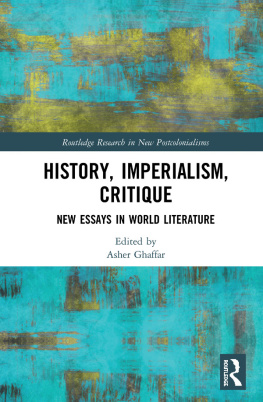
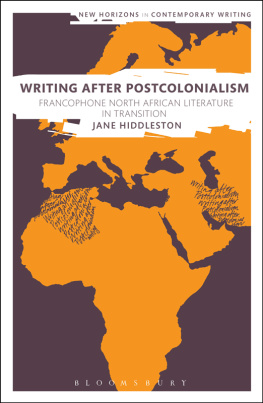
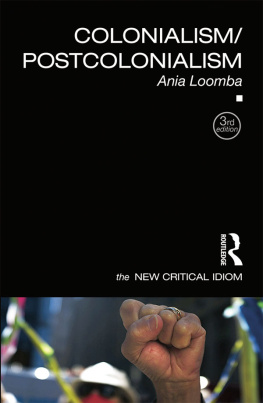

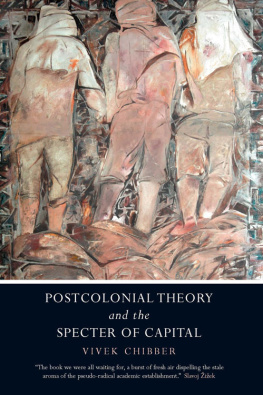
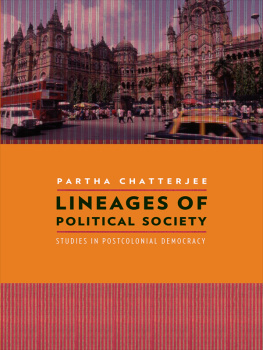

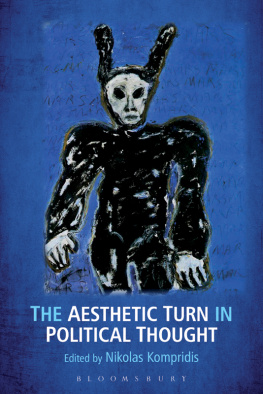

 The paper used in this publication meets the minimum requirements of American National Standard for Information SciencesPermanence of Paper for Printed Library Materials, ANSI/NISO Z39.481992.
The paper used in this publication meets the minimum requirements of American National Standard for Information SciencesPermanence of Paper for Printed Library Materials, ANSI/NISO Z39.481992.